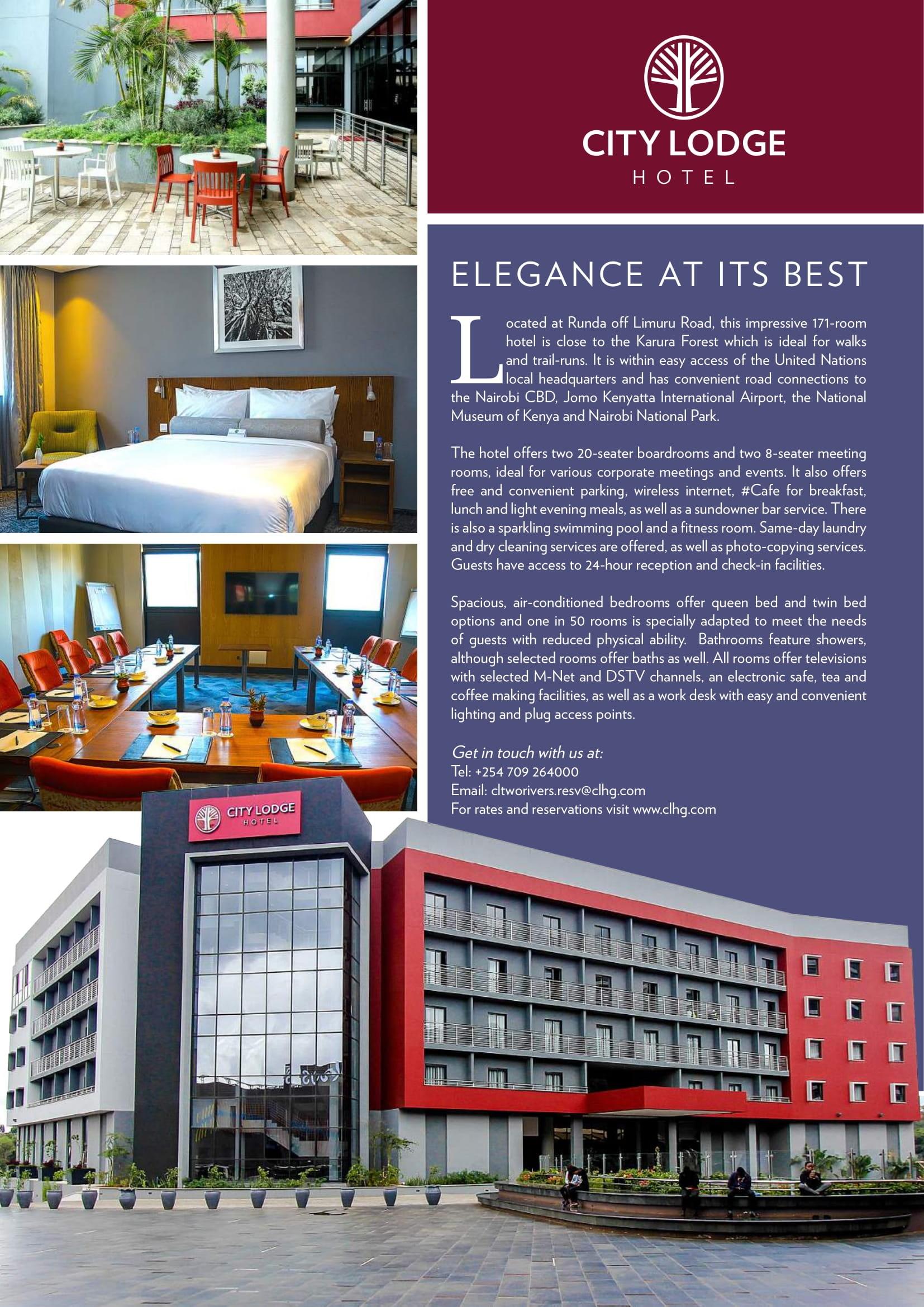
20 minute read
MINDFUL LEADERSHIP: HOW TO GET THE MOST OUT OF YOUR TEAM
Mindful Leadership: How To Get The Most
Out Of Your Team
Advertisement
At the core of self-awareness for leaders is that they understand the impact their behaviour has on others. To what extent do other people notice you asking for feedback on how you approach things? How would you do if you had to compare to how they see you and how you perceive yourself?
By DERECK BBANGA
n a recent study, when asked, “What are the top issues you face at work?” leaders said that 76% are on the people or relational side. You may not have anyone reporting to you but whether you're an entrepreneur or a manager in an organisation, you have to inspire your team or clients. Leaders who practice mindfulness, and apply mindful techniques to their leadership of others, are better equipped to cope with everyday leadership challenges and create high performance in others. When you're mindful you’re able to both observe and participate in each moment of any action you take while recognizing the implications of those actions for the longer term.
The start of being a mindful leader is self-awareness which is the ability to be aware of your own emotions, moods and feelings and the way they are impacting you. Self-awareness leads to self-confidence and self-confidence leads to success. A quote from the book Competent Manager says "Among supervisors, managers and executives a high degree of self-confidence distinguishes the best from average performers."
The self-confidence I’m referring to is not arrogance or cockiness, it's much more about feeing that whatever situation I go into, I'll be okay. And the only way you can know that you'll be okay, is if you know yourself well enough to be able to predict what that will be like.
The first component of selfconfidence is self-assessment - what are my preferences, my likes and dislikes, strengths and weaknesses. It's important so that going into situations that are going to be challenging, you know to prepare. The second component is emotional awareness. If emotions affect us so dramatically, then we have to know what's going on inside us and to be aware of our internal state and intuitions.
At the core of self-awareness for leaders is that they understand the impact their behaviour has on others. Another two critical points in mindful leadership is to what extent do others perceive that you (the leader), is aware of your own strengths and limitations.
Also, to what extent do other people notice you asking other people for feedback on how you approach things. How would you do if you had to compare to how they see you and how you perceive yourself? There is a German expression - awareness is curative. Just knowing something is curative. Just having an awareness of your limitations moves you toward protecting yourself against them.
Emotional awareness is very important for mindful leaders. Emotional awareness is demonstrating an awareness of your moods and emotions. Emotions are physiological responses that arise in response to an external stimulus. Mindful leadership is about noticing those emotions as they are arising, so that when somebody says something that upsets you, you're I
LEADERSHIP - EMOTIONAL INTELLIGENCE “ TO UNDERSTAND WHAT'S MEANINGFUL FOR OTHERS, YOU NEED TO FIND OUT WHAT'S MEANINGFUL FOR YOURSELF. INVERSK MAGAZINE

tuned in to your body and you're aware of your emotional state changing. In fact, bodily sensations are easier to be aware of, so you can use them as a gut check in your emotions. The difference between pictures taken with the Nokia N76 in 2007 and today's iPhone X is data. The iPhone has many more megapixels giving tiny bits of information from the image taken but they all add up to give a higher resolution as compared to the old Nokia with much less megapixels and data and hence much fewer sharper images. Similarly, with emotions, the more you notice your emotions rising in you, the more pieces of data you have, the greater your emotional resolution - more awareness of your emotions.
Did you know the average person has approximately 15,000 thoughts a day and of these about 7500 are negative thoughts or about 5 negative thoughts per minute. Each of those thoughts evoke an emotional reaction although most of them you do not notice as they go on beneath the surface.
But sometimes you might be sitting in a meeting with your colleagues at work and suddenly your mood falls off a cliff. It could be a reaction to one of those emotions that are going on in the background that are triggered by one of the 7500 negative thoughts you have. We respond physiologically to these emotions and that affects our mood.
So how can mindful leaders inspire performance in others? Well you have to understand those others purpose and contribution and what work is meaningful to them. And in order to understand what's meaningful for others, you need to find out what's meaningful for yourself.
When you figure out how to create a vision that inspires you, what makes your own work meaningful and gives it purpose, it's only then that you can inspire others. On his deathbed, Steve Jobs said "Knowing you are going to die releases you from the burden of thinking I cannot follow my heart and create a vision of who I truly want to be." He wished he had followed this philosophy his whole life. To become a more mindful leader; 1. Reflect on feelings when making decisions 2. Ask others how they feel about potential solutions to problems. 3. Consider issues from multiple perspectives. 4. Be aware of biases in decision-making (e.g., women aren’t’t as good as men at dealing with certain issues).
A flood of research is increasingly proving that a company’s people are the differentiating factor. Mindfulness is all about “people smarts” –it's about relating to yourself and others. In difficult times, the soft stuff often goes away. But being mindful, it turns out, isn’t so soft and lack thereof can jeopardise your ability to perform, or be compassionate in a crisis. It isn’t a luxury you can dispense with in tough times. At the end of the day, mindful leaders have employees who perform better, suffer less burnout and have more satisfied people working for them. Derek Bbanga is a Certified Emotional Intelligence Practitioner with Genos International teaching emotional intelligence in the workplace. You can reach him on derek.bbanga@publicimageafrica.com
The Dilemma of
Aspiring Entrepreneurs
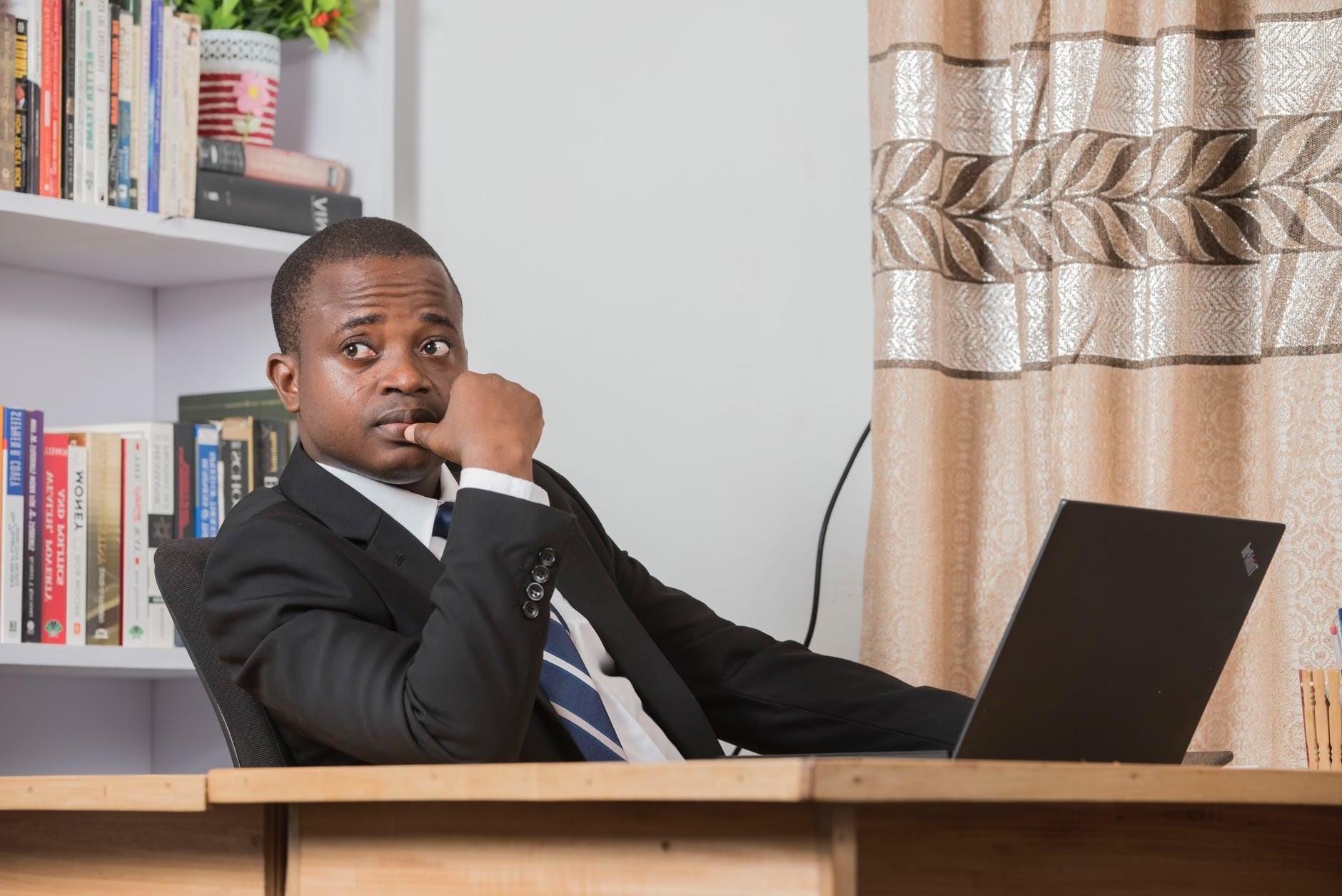
BY MORAA MICHIRA
sk any campus student in their third or fourth year what they would like to do with their lives after campus and the majority of them will say they would like to run their own entrepreneurial venture. This is more so very true for those who have done Bachelor of Commerce, Engineering and Law. These youngsters A
dream of creating their own companies.
Fast forward to a few years after campus and the version of the story will have changed. First, 90% of them will be caught up in an eight-to-five job, complaining about their job but not quitting any time soon. Ask them what happened to their entrepreneurial dream and they will sight being realistic as an excuse.
The truth of the matter is that these changes of focus happen because of several reasons. For instance, Richard cleared campus in 2014 and graduated the same year with a Bachelor of Commerce degree. As he did not have a relative in Nairobi, it prompted him to rent a house of his own along Thika Road.
His parents did not support him financially so he had to look for a way of fending for himself. He started off by working in the county government office as an intern for six months just to gain experience. The internship was non-paying so he had to do online writing to pay his rent and buy food.
Christine, also another aspiring entrepreneur, cleared campus with Law degree. She was quite adamant about how lined up her career path was. After clearing the campus, she was offered a job in one of the leading audit firms in Kenya. “Self-employment is such a hustle if you think of it. At least here I am assured of a steady and comfortable income at the end of the month,” she remarks.
Moreover, there are those who abandon their dreams because they are afraid of the uncertainties of entrepreneurship. “What if the business does not pick up and I lose all the money I had invested? “asks Damaris, a recent graduate from the university who is working for an advertising firm.
Back in college our Entrepreneurship lecturer kept telling us, “Do not be like me. Go out there and create jobs. Do not go to the marketplace seeking jobs.” Then he would proceed to tell us a story about many of his friends who decided to pursue their own businesses and how well they are doing now. The way he said it, you would not like to be in his shoes in the future telling your students the story. Instead, you would rather be the one the story is about. But then we kept wondering why he did not quit already and pursue a business of his own. Well, I never got the answer, I just knew which side of the story I want to be.
From the foregoing, there are many reasons the Kenyan graduates fail to follow up with their ventures. Some have ideas but they do not know how to implement them. Such are the ones who require business mentors. These can guide them through the first steps of actualizing their goals.
When someone has a mentor, they have the confidence that their steps have an overseer. These mentors also keep them accountable of the things they had planned seeing to it that they implement reasonable changes along the way without deviating from their ultimate goals.
For the likes of Richard that must meet their basic needs first before venturing into entrepreneurship, it would have been such a relief if the government would offer unemployment allowance. These people would at least get the time to think about their business ideas and implement them instead of wondering what to tell the landlord at the end of the month.
For the risk-averse, there are many workshops around Nairobi such as the Young Entrepreneurs (Ye) Community whereby entrepreneurs are empowered and given the opportunity to network with likeminded people. It is at these forums that one can get to learn what others did to get to where they are. Having attended one of these YE community events, many young people have great ideas which they are willing to share and brainstorm with others.
It therefore takes the initiative of the young people to look wide and find out which events are happening where entrepreneurs can network and avail themselves. In short, those who make it in this arena are the bold, the go-getters and those who do not get complacent because of the comforts brought about by present comforts. Some of these events cost money to attend but when you look at the end game, they are worth the money and the time as Richard Kiyosaki explains in his book Rich Dad, Poor Dad.
At the end of the day, determination, hard work, and persistence will differentiate the entrepreneur from those who give up on their courses. When you know that no matter how much longer you stay in that office, all the profit will be assigned by you that is when entrepreneurship pays off.

From Obsession to Empire
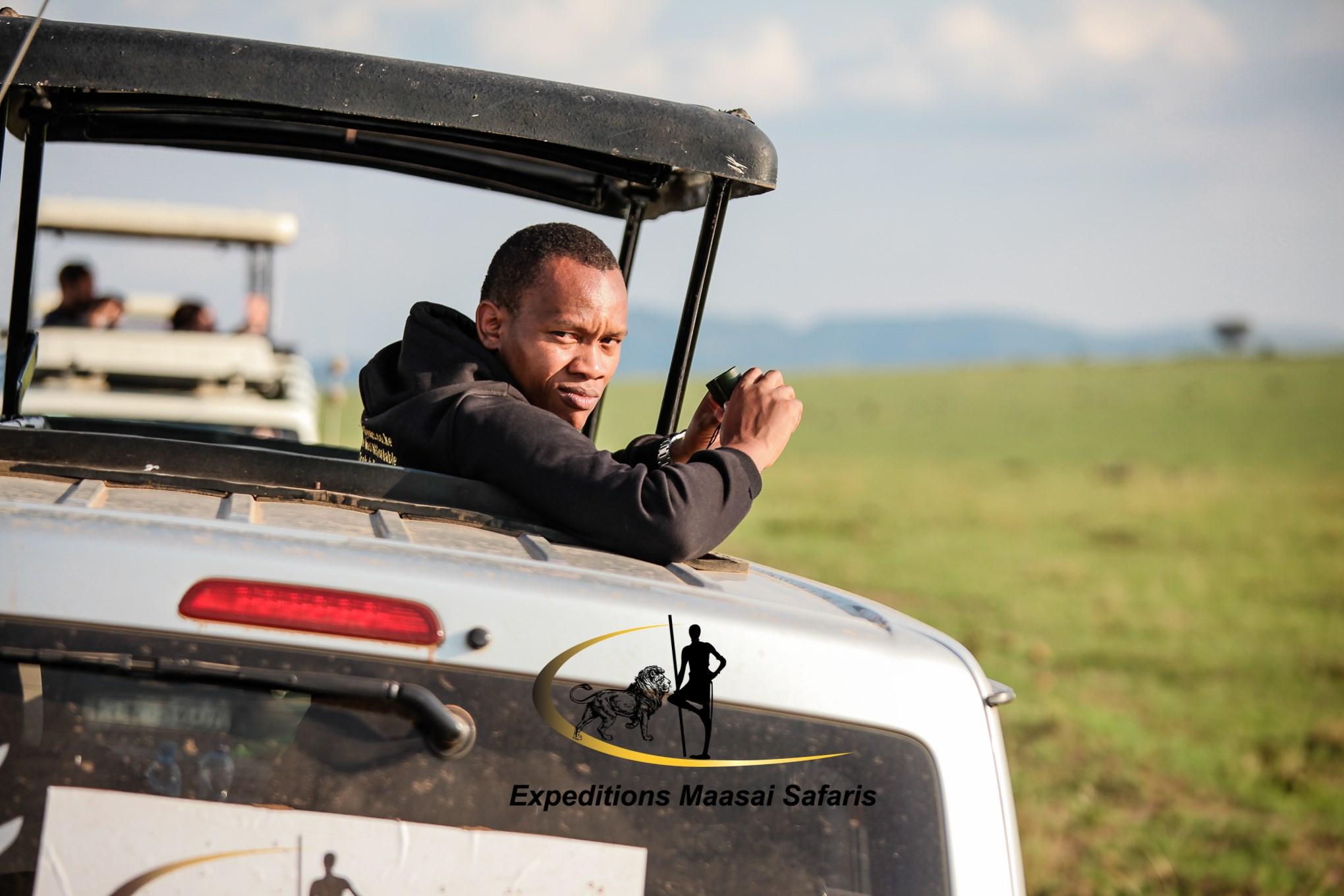
A Behind-The-Scenes Look at How Expeditions Maasai Safaris' Pancras Karema Built a Household Brand from a Mere Obsession
By KIMANI PATRICK
ntrepreneur Pancras Karema is not taking chances or stopping at anything until he wins.
The University of Nairobi Tourism Graduate has transformed his high school obsession into a household name in the Kenyan tour industry within 5 years –with two offices in Nairobi, one in Mombasa, 50 employees and thousands of customers travelling all over the world. His greatest ambition is to build Africa’s first unicorn in the tour industry.
Karema will do whatever it takes to win, from risking long working hours to deliver to his promise to making clients believe he is good at what he does, the blazing entrepreneur is an ambitious provocateur with a laser like focus and key attention to details.
On the Christmas eve of 2019, I sat with him at the Westlands based Movenpick Hotel for a feature interview for Inversk. Our one-hour meeting ended at midnight, lasting 5 hours.
His success story dates back to his childhood days. Being the first born in a family of 3, Karema had to take care of his younger siblings by showing them direction and guiding them on the right choices to make in becoming responsible humans, an experience that taught him “people are different and you have to be patient when dealing with them. I learnt how to be a good and responsible leader. Skills that I still apply to this day.”
His mother is a former teacher turned housewife and his father is a lecturer at the University of Nairobi. Being teachers, the parents were strict disciplinarians. “My dad was very tough on us in terms of undertaking studies and working hard. He taught us how to dream big, be responsible, how to know exactly what we want in life and planning on how to achieve it and remain focused until we get it.” Karema never had a role model. Everyone he knew in the village was either a teacher, a drunkard or both. “This is not the life I wanted.”
Determined to change the narrative and inspire young people in his village, Karema developed curiosity to learn about everything and anything.
From football, politics and entrepreneurship, Karema wanted to know what makes people different. And with his father’s newspapers and local library materials, Karema read about people like Michuki, Peter Munga, James Mwangi, Richard Branson who hit headlines on different matters in business. “I wanted to know how they think and make decisions.”
“People also used me as their source of information and I definitely had to read more and get all facts concerning a particular subject.” He says. “ THIS IS THE ONLY JOB I HAVE EVER HAD. E
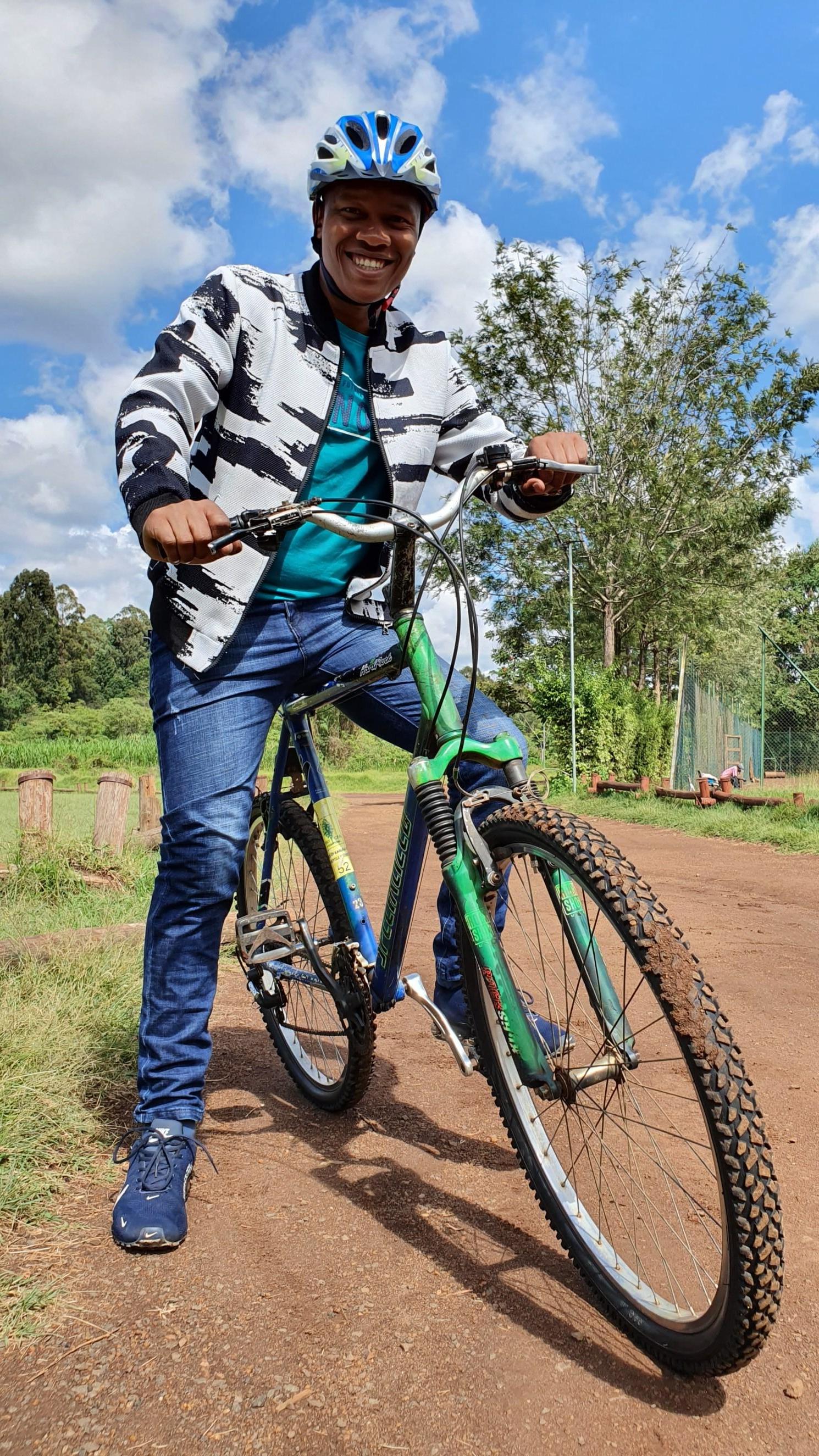
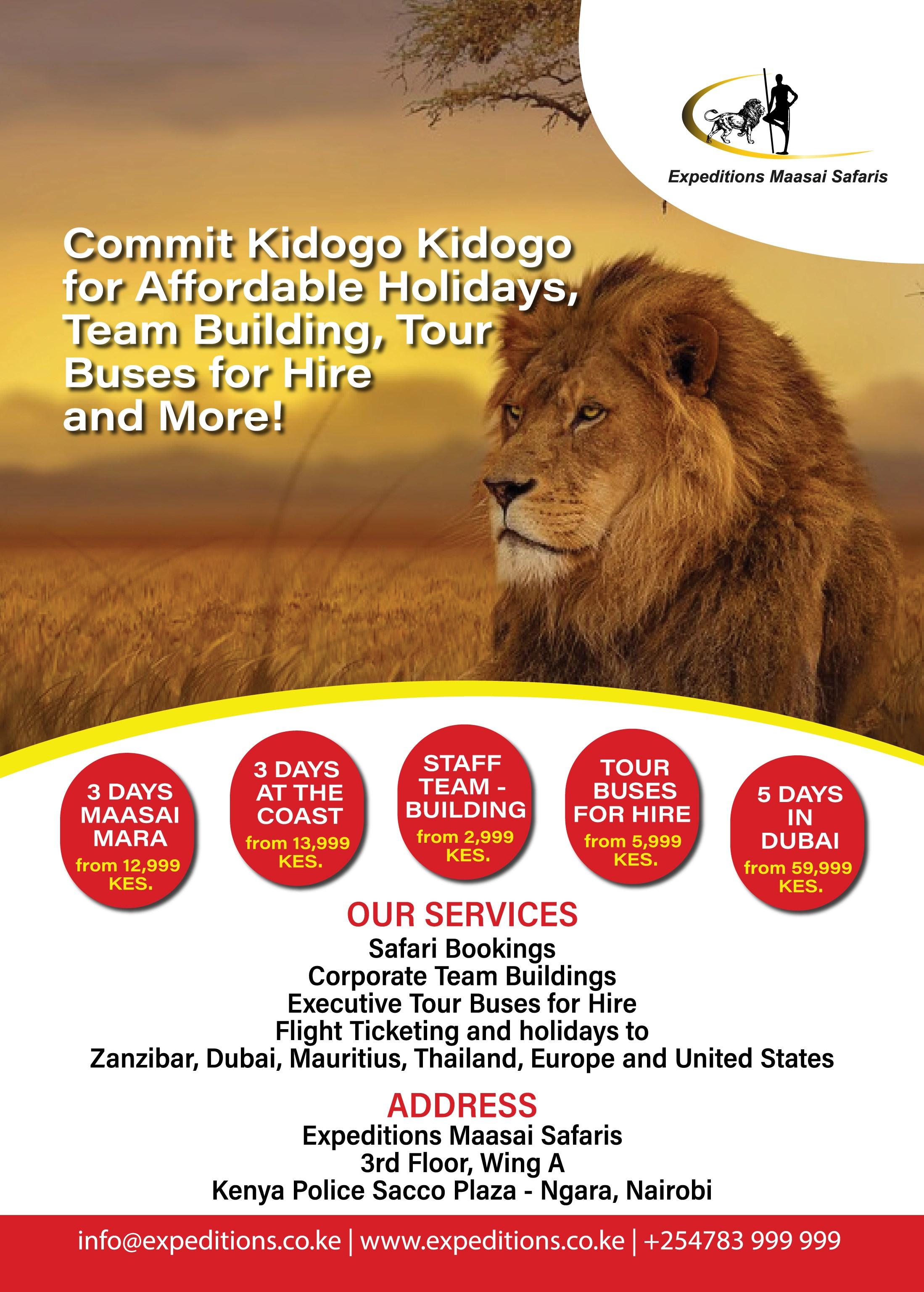
Eunice understood how tough entrepreneurial landscape is for starters and hence spent months doing research to establish what customer pain points were and what exactly they needed in order to buy insurance. Also, she ensured she had saved enough money for one-year expenses, both personal and hew new found baby.
Armed with this readiness and the vision is to enable customers to access insurance and investment services in a transparent, convenient, and friendly manner, she jumped off the ship, to a journey to the unknown. Something she does not regret at all.
In July 2017, Bismart was launched –a supermarket for insurance products; a platform where customers can compare benefits, exclusions and prices for different products offered by Insurance firms.
To start with, Eunice leveraged on her network and partnered with 13 leading insurance companies in Kenya. Today, she is happy that tens of customers log on to the web-based platform to compare the policies offered by these companies. a one-stop shop.” Eunice says.
Bismart’s portal leverages blockchain technology "Smart-Contracts" to facilitate the management of policies and benefit from the security of decentralized databases.
The firm brilliantly solves the problem of creating a pan-African distribution channel by "disrupting" the insurance value chain, from acquiring customers to risk management.
By implementing technologically assisted smart contracts, Bismart is increasing transparency and efficiency in claims processing and thereby address the primary barriers to insurance and financial services adoption. Through the portal, one is able to complete paper work and get a cover within 3 hours of submission.
At school, Karema was an average student and sometimes a headache to teachers. He studied at Ontulili Secondary school, located at the foot of Mount Kenya.
On Saturdays, he could lead a troop of boys into the forest for adventure. While this got him into trouble, he saw it as the best way to get out of the boring-confined school life. He needed to swim, meet animals and explore. What he or his friends didn’t know was that he (Karema) was preparing himself for his future life –building a tour company.
The tale of how Karema built his company to where he is today is rather intriguing, “this is the only job I have ever had.”
When he enrolled for his BA degree at the University of Nairobi, Karema started helping friends go for hikes and adventures. Something that made him popular. “Everyone came to me to help them because they heard what I was doing.” They nicknamed him ‘the organiser.’ “We referred our outings as ‘expeditions’ because all we wanted was to go out and have fun.” No one knew this could later become his company name.
Owing to his attention to details and reputation to delivering good results, people from outside campus also reached to him and asked he could help them organize a hike or team building activity. Something he did at a fee.
In 2015 after clearing his studies, Karema registered Expedition Maasai Safaris. “I still resided in the campus hostels and my income was too little to sustain me.” He could later be joined by a childhood friend with whom they rented a hostel in Ngara and a small office near City Market. “Our office rent was Ksh 7,000 and we had one laptop which we used in turns.”
Their marketing strategy involved handing company fliers to strangers in town, social media hyping and referrals from clients who had been satisfied from their services. “People used to listen to us and some could trust us to do business with us. We had so many customers but the revenues were so little and no profits. We were struggling.”
The big break came in September 2016 when Expedition Maasai Safaris got nominated for Biz Yangu award at the Soma Awards. “It was a small award compared to other award categories, but we needed it. We did all we could to created online campaigns and asked for votes.”
Surprisingly, despite competing with big brands, their company won the award and also crowned company of the year Award. “This was a miracle for us because we had not envisioned it. It opened doors for us to the media and ultimately to the corporate world.”
The award came as a validation for Karema’s hard work. It also gave them credibility for their work and corporate companies started working with them. Today, Expedition Maasai Safaris is the leading among the few credible One Stop Holiday shops in Kenya.
Driven by affordability customer-first approach (Professional teammates who are patient and go out of the way to ensure customers get satisfied), the company’s flexible Commit Kidogo Kidogo and the fact that Expenditions is the only Kenyan tour company with a Visible and concrete CSR program. I was impressed to learn they have been supporting needy students through the Affecto Foundation as part of their commitment. In addition, the Karema mentioned they offer a fully paid holiday to 5 less privileged students who are performing well each academic term.
While the journey seems blissful in its making, the journey has been tough for Karema. “Being a young person is a challenge by itself. No one wants to do business with you or better yet believe that you can deliver what you promise.”
With only 10% of whole world’s population travelling, Kerema believes the opportunity is big for him and he’s just started scratching the surface. The company have so far grown to have 3 outlets; two in Nairobi and one in Mombasa.
To know a genuine a tour company, Karema advices you to “do your own research. Search on the internet about the company, the Facebook reviews, photos of people who have travelled with the company. Inbox a random person who have travelled with the company and ask them about their service they experienced.” WITH COMMIT KIDOGO KIDOGO, ANYONE CAN TRAVEL AND PAY IN INSTALMENTS “

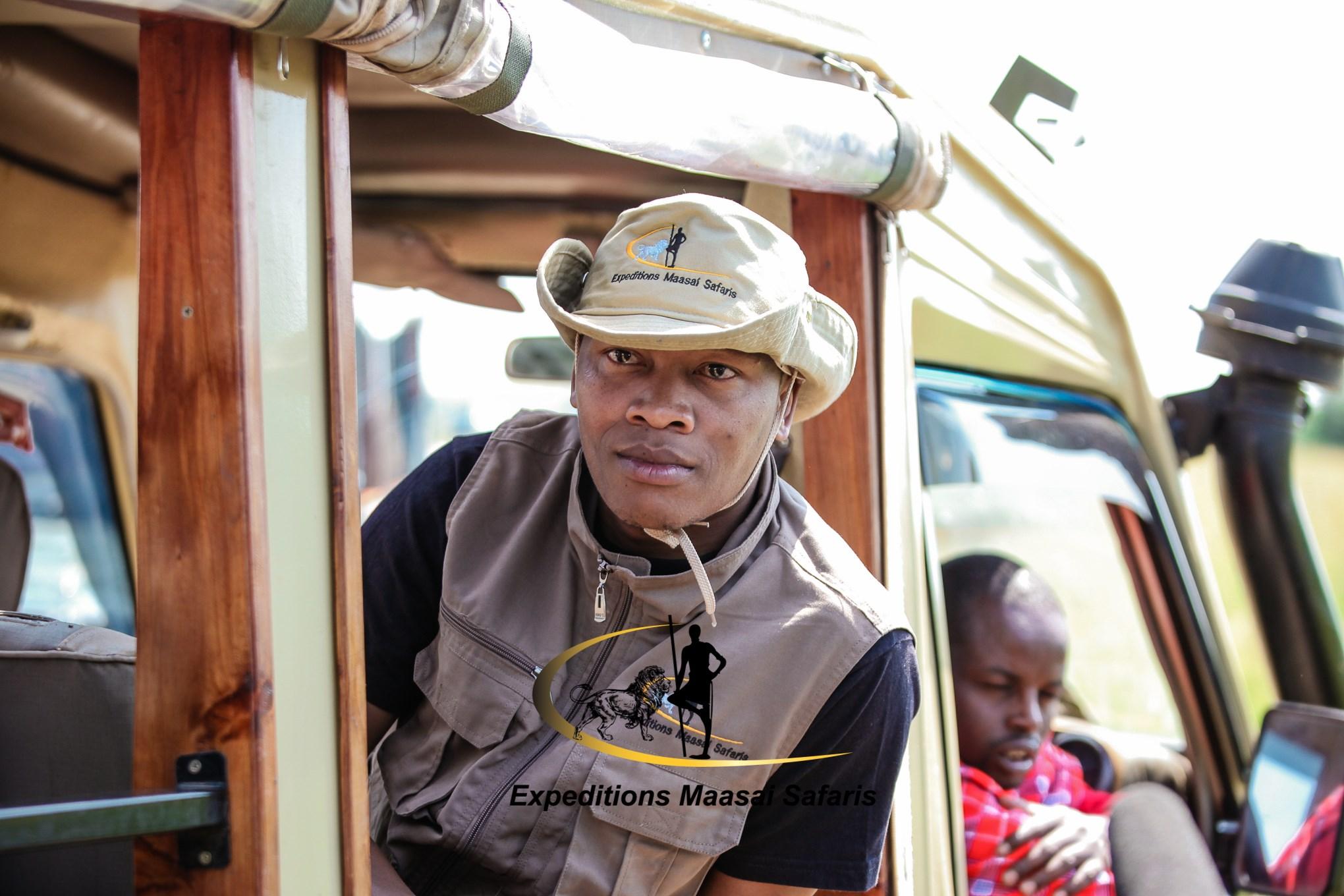
1

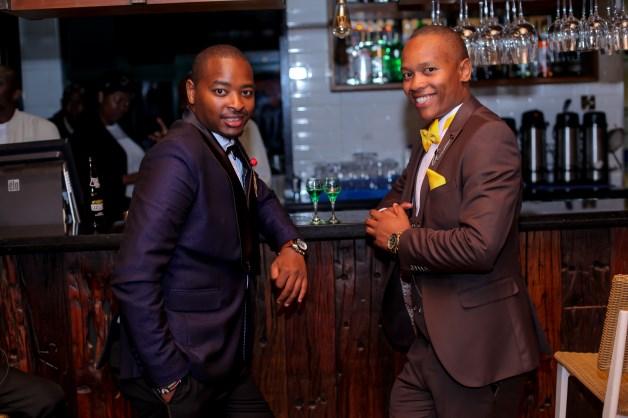
3

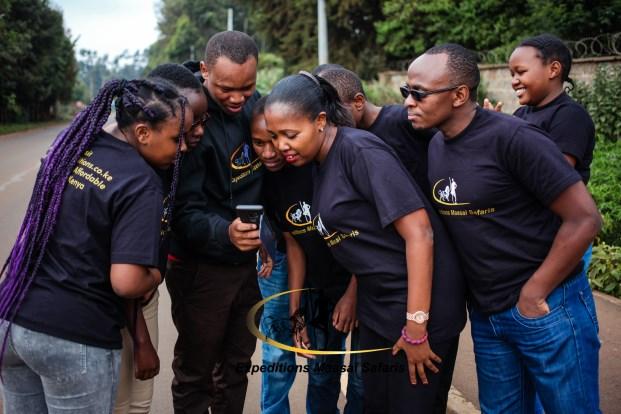
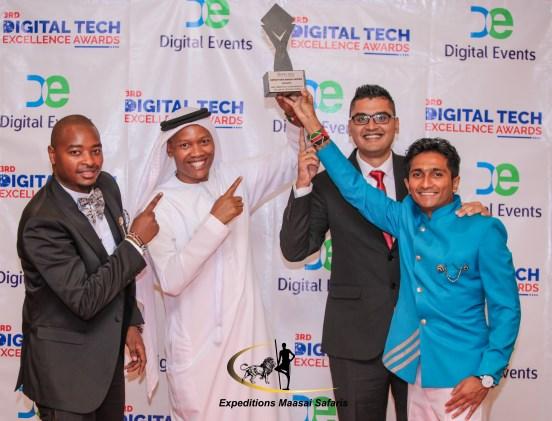

4
5 2

1. Pancras with The MD Lawrence Ndegea at Windsor Golf club
2. During Digital excellence awards at Intercontinental Hotel
3. With our Marketing Manager Joseph Dubois & Affecto foundation beneficiaries in one of their tour to Masai Mara catered by Expeditions Maasai Safaris
4. With the part of management team receiving the award after Expeditions Maasai Safaris was crowned The best tours and travel company in use of Technology.
5. Pancras Karema, Expeditions Maasai Safaris Chairman Kavit Shah and Lawrence Gitonga (MD) pose with the SME of the Year Award
What Lessons can we learn from Pancras Karema’s Story?
1. To build a successful company like he has done, Karema advices that one must to learn how to live with people. "You have to be very good with people. People can build or destroy you.”
2. Avoid debts like a plague. If you have other people’s debt, they will bad mouth you. Even if you owe someone Ksh 10, pay and go. Better be left with no money and no debt. That is the only way you will be able to budget with what you have.”
3. Pay your suppliers on time. If you do not have suppliers and you cannot stand on your own, they will let you down.
4. Be consistent and focused at what you do. Find one thing you can do and remain at it no matter what your friends tell you or how many opportunities come your way.
5. Be honest with your customers. Do not promise what you cannot deliver. When you deliver to your customers satisfaction, you earn their trust and they will refer you to their friends. These people also become your evangelists and fight for you in your absence. With trust, you can get anything you need.
6. Do your research well. Even with people you want to partner with such as suppliers, you need to know their background. A deal can turn sour and you end up losing your customers money in wrong hands thereby destroying your reputation.
7. Maintain a good online personal brand. Let everything about you be consistent and easy to find on your social media pages. Employers and contractors secretly visit your social media accounts and pages to see they type of person or company you are and what you are up to. A wrong post or inconsistency in what you share can deny you an opportunity.


Kimani a Kenyan Entrepreneur, CEO of Carlstic Group and Executive Editor for Inversk Magazine.
He is passionate about supporting entrepreneurs, small businesses, innovation, and the growth of the African continent.
